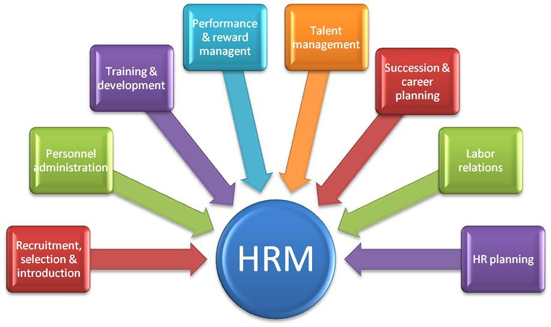Ethics, ethical behavior and professional responsibility- Professional Practices in IT

Ethics, Ethical Behavior and Professional Responsibility – Professional Practices in IT
Importance of ethical guidelines
The education and training curriculum of IT professionals is mainly focused on providing technical knowledge and expertise. It teaches you how to perform tasks, but not about ethical practices. Information about ethics, code of conduct and how rights can be misused and its consequences are missing in the course contents. Therefore, many times violation to the set rules and regulations happens due to ignorance too. Ethics should be incorporated in each of our actions. The decisions we make in our day to day life raises ethical questions. In this article created by experts of ExpertAssignmentHelp we will present to you some of the real issues of ethical dilemmas that are faced by company employees on a daily basis.
So what are ethical issues? Most of the ethical issues that are faced by IT professionals are related to privacy, according to human resource management assignment help experts. This becomes a huge professional responsibility of the organization to ensure the data has been accessed by an authorized personnel. To accomplish this it is equally important for an organization to inculcate ethics in their employees to avoid any sort of deviation or violation from corporate policies and regulations. Leadership can help is development of ethics in a particular organization. They have to guide their team members about ethical practices, inspire them to follow the ethical code of conduct, and also teach them the consequences when failing to follow the prescribed rules and regulations.
-
PRIVACY
This is the most basic ethical issue in any Industry. IT security staff in companies many times have access to sensitive and confidential information about employees, companies, its networks and systems. This empowers them with massive power and rights. This power or rights when abused, either voluntarily or involuntarily can lead to irrecoverable loss and damage to both company and its employees. Almost all organizations make a record of the personal information of its employees at the time of their recruitment. This record, if not maintained properly can create negative implications for employees. Personal information includes previous and current salary details, background details, past work experience, family details and personal identification information, such as social security number and account identifiers. One can access encrypted data with the help of the recovery agent account. All this information has to be safeguarded and accessed only by authorized personnel. Many times software systems are there that tracks such information, it is important to ensure the authenticity and reliability of such systems before using them. Organizations regularly exchange this information with other systems, merges databases to add onto or amend existing records. Any employee when enters in a company should keep in mind that there is no such thing as “privacy”. The information contained in their folders, keys that have been typed, site they have accessed, and what is currently going on their computer screen at every instant of time is getting accessed. The question here comes “Is this ethical to monitor each and every activity of an employee which falls outside of their job responsibilities?”
-
OWNERSHIP
Various organizations make their employees agree to NDAs (nondisclosure agreements) and other clauses in employment contracts. In these clauses they mention that if an employee reveal company’s sensitive information with other employers or employees and prevent them to join a certain company etc., then it goes against the ethics. It has been seen people when leave organizations tend to disclose hidden secrets and documents, proprietary methods and technology, and other knowledge with other companies to give them a competitive advantage. Is it justified to use the knowledge gained at one company for the benefit of another company? In addition to this, being a software developer or a project manager, you must have access to the source code, strategic methods, procedural information and advanced tools you have used in your project. You may have developed a project for your company, but is it right to claim any part of it? How ethical it is to take any code, design or test cases with you to use as a helpful resource in your future company or for starting own company?
-
SECURITY
There are many cases in IT Industry wherein it has been observed that networks are breached, personal identification information is leaked, identities are misused and critical confidential official information, financial statistics, and trade secrets are stolen from the systems.
Industries generally have internal ethical policies to take stringent action against such security breaches, but many have not developed specific policies to address this urgency. Should the employees be allowed to read private e-mail of their co-workers just because you have the right to do it? Well, one can exercise their right as a security measure only when they suspect that company’s information is getting disclosed. The question here is do companies disclose to the employee that their emails were getting recorded and was considered legal under company policy rules? How ethical it is to install key loggers on systems or screen capture programs on the network in order to capture the activities of an employee? As a network administrator or a senior level person, one may have the legal right to supervise all that an employee does with its system. Here we are discussing about how ethically you exercise your rights so that it does not go beyond official motive. Consider a case when the information you were reading showed the company was involved in scandals and did violations of laws regulations or laws prescribed by the government? What should be an employee’s professional responsibility in such a case? Isn’t it your moral obligation to bring it in front of everyone or you are bound to follow your company’s ethical policy that prevents you to take any action that destroys its reputation in public.
Summary
Unlike established institutions such as medicine, law, accounting etc. Most of the ethical issues that IT employee faces have not been given a regulatory form. Also, there is no standard mandatory national or state level association that has established a comprehensive code of ethics. Organizations can develop their own codes of ethics and professional conduct, to encourage implementation of best professional practices in the Industry.
Other articles under blog series of “Professional Practices in IT”
- Managing team work and the challenge of leadership
- Managing Human Resources in IT, and Change Management
- IT systems Audit and QA
- Written and Oral communications in IT
- Professional Practice in IT Project Management
- Managing Software Testing
- Managing, protecting and systems integration
- Ethics, ethical behavior and professional responsibility
- Tools and techniques for decision making
- Investigative Research Methods
Do not miss to check similar blog series in other topics
[mc4wp_form]
Related Blogs





